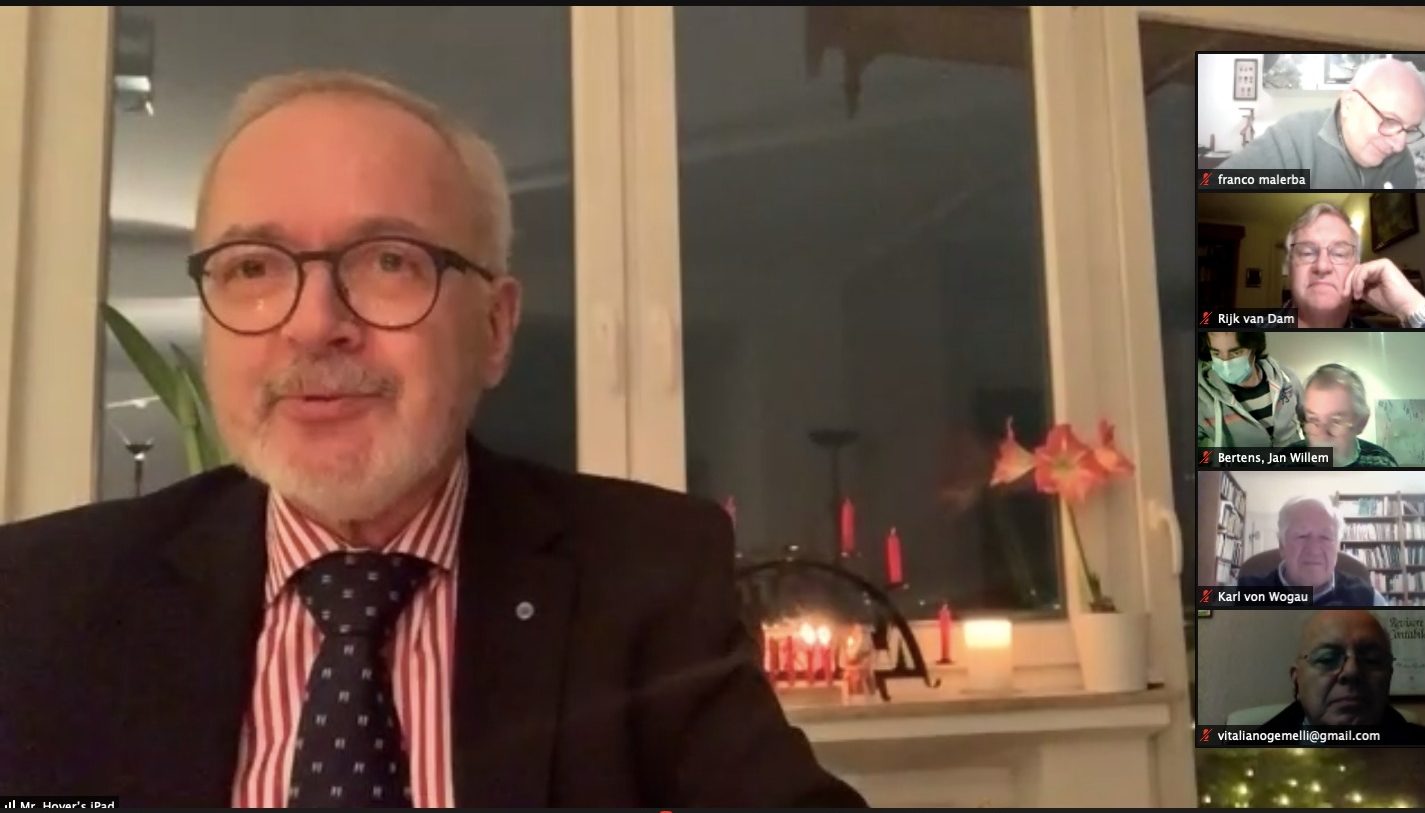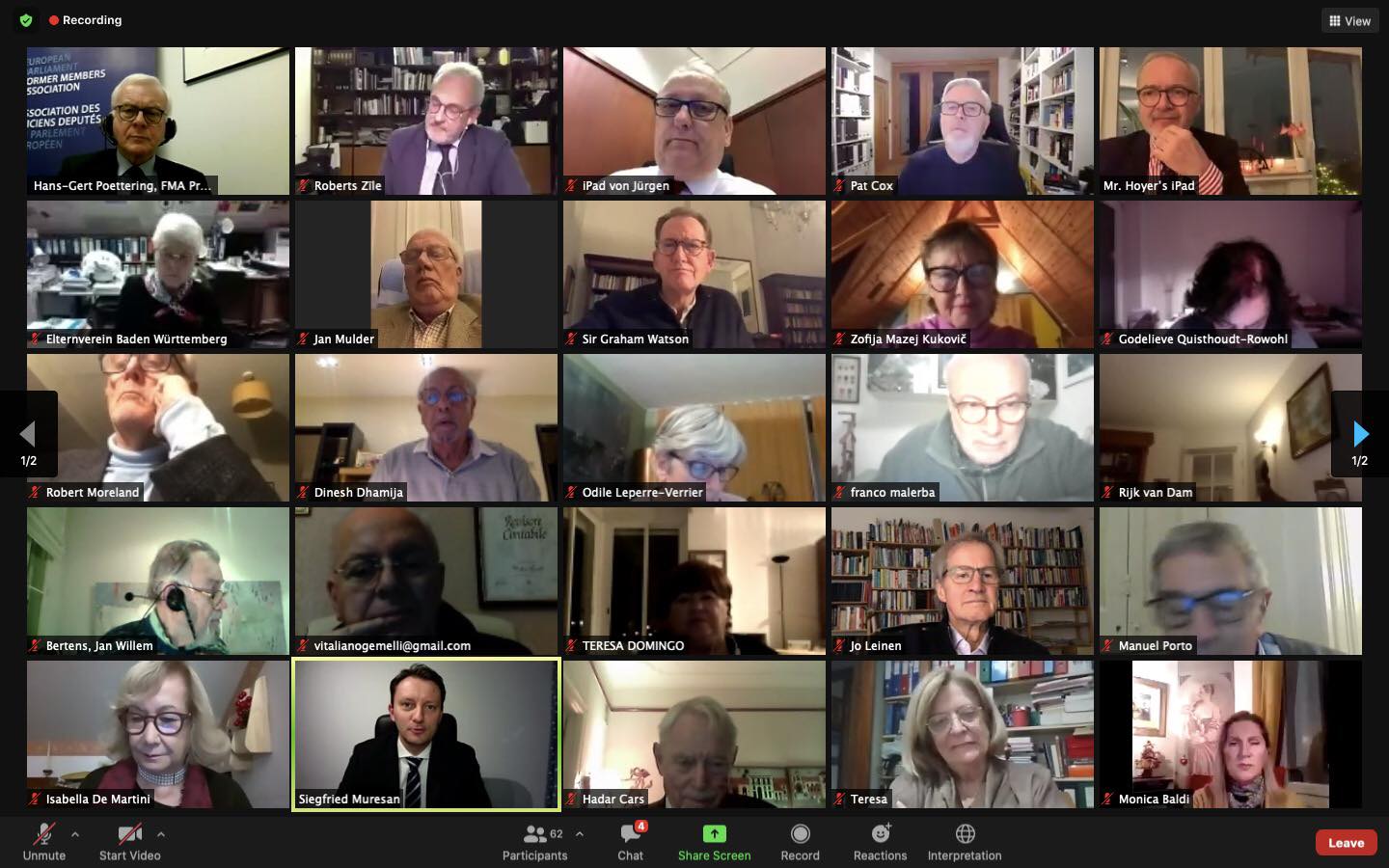Werner Hoyer pointed out that there is still apprehension and doubt about the transition to green energy instead of fossil fuels. He warned that investment in fossil fuels is no long-term investment anymore. This kind of Investment can only lead to harm, and this trend cannot be reversed in the next 15 years. Thus, he considered that it would be irresponsible to continue to invest in fossil fuels as a European bank.
The EIB and the UK will also go separate paths after the Brexit. UK money will gradually go back to the country and UK representatives within the EIB will be exchanged.
Other questions were about the preparation towards China’s non-sustainable investments in Africa and South America, obstacles the EIB faces, how long it will take to retrain non-workers into digital workers, worries about hydrogen energy and housing and the public market and its impact on emissions.
Werner Hoyer explained that the Chinese have flooded Africa and South America. However he says a growing trend of African investment reconsidering and rejecting Chinese projects as many are not durable and need to be rebuild after five years. The EIB needs to be present and help the African leaders to secure the future. He added that the investment in sustainable housing is one of the biggest projects to reduce emissions, therefore the EIB will increasingly invest in this field and go beyond European borders.
Finally, Hoyer addressed the concerns about the use of non-green hydrogen in the future to reach the EU’s climate goals. Hydrogen energy is currently seen as the top alternative to the use of fossil fuel but it needs to be guaranteed that its production does not cause carbon itself. That is why Hoyer explained, that it is with high demand that the EIB will only invest in hydrogen if it is green hydrogen. He himself is doing full research for every possibility concerning hydrogen energy because he does not believe that a focus on one energy will be sustainable for Europe’s future – technology should be open to benefit society.
The discussion ended on Hoyer’s last note that when different work cultures or institutions work together, it can be difficult. However, the interinstitutional cooperation between the EIB and the European shows that as when there is a constructive political dialogue that eventually translates in guidance on strategic issues and policy, Europe will be able to prevail challenging times.




